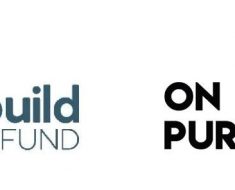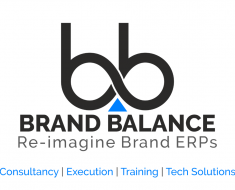A new study by global communications agency BCW has found that the growing economic uncertainty has forced employees to reprioritise what they want from their employers, signalling a significant shift in expectations since the global pandemic and highlighting a return to basics, with job security, a safe and comfortable workplace, salary and benefits, and a renewed focus on workplace culture topping their priorities.
The inaugural BCW Expectations at Work study, which surveyed more than 13,000 people across five industries and 15 countries around the world, reveals that one in two workers say they value the basics of job security (52%), workplace safety and comfort (50%), salary and benefits (49%) and workplace culture (48%) most out of 62 components across five dimensions of the employee experience.
Further, the hotly debated topic of choosing where you work, whether that’s at home or in the office, ranked just 12th (44%) for those currently working between both.
Globally, 50% of employees say they’re very likely to stay at their current job over the next 12 months. The study found that employees’ intent to stay grew by 18% when they were happy with the fundamentals of salary, job security, and the workplace. But, for those organisations both meeting these basic needs and building a positive workplace culture, intent to stay increases by 24%, as does job satisfaction by 56%, and employees are 68% more likely to say they would recommend their employers. These numbers are even higher among Millennial and Generation Z employees, who say they’re even more likely to stay (30%) when all these needs are met, versus those working in organisations where they are not.
In India, a safe, comfortable workplace tops employees’ expectations (59%). This is followed by an expectation that C-suite leaders set a clear vision and strategy (59%). Employees in India rate job security as the third most important (58%) expectation of their employers. Employees also expect leaders to inspire people to do their best (57%), and managers to give clarity on growth and career opportunities (57%), as well as provide access to necessary tools and technology (57%). Over half of the top 10 expectations for employees in India are workplace culture drivers, including the effectiveness of leadership decision-making (57%) and leader visibility (57%), as well as internal communication (57%) and employee voice (57%). With the exception of millennials, who rate a safe, comfortable workplace as their top expectation (65%), workplace culture drivers top the list for most generations in the Indian workforce – Baby Boomers (visible, effective leaders – 61%), Generation X (taking a stand on the issues that matter – 55%), and Generation Z (open, honest internal communication – 68%). Finally, unlike in other markets, pay and benefits drivers do not feature in the top 10 most important expectations in India at all (competitive salary ranks 36th overall).
“Our Expectations at Work study highlights both the aspects of working life that are most valued by employees – including the important nuances between the four generations currently in the workforce – and where organisations are falling short,” said Donna Imperato, Global CEO, BCW. “This research underscores BCW’s expertise in moving people by providing rich data into the changing expectations of any company’s most valuable asset: Their employees. For businesses to move they must move people, and this data illustrates what leaders need to consider to ensure they have an engaged and effective workforce that will help them overcome complex challenges and grow.”
In addition to learning about employees’ expectations, the survey also asked employees to rate their employers’ performance across all dimensions of the employee experience. The study found that it was in culture and leadership where organisations have the most ground to make up to meet employee expectations – particularly among younger generations, for whom the bar is higher. When comparing employees’ responses to their expectations of their employers with their responses on their employers’ performance, there was, on average, a 17-point gap between employees’ expectations and their everyday reality in the areas of wellbeing (16pt), internal communication (17pt), workplace democracy and employee voice (16pt), and leadership (17pt), indicating these are critical areas for organisations to close the gap.
“While the pendulum has swung back and forth between conditions favouring employees and employers throughout the pandemic, the one constant we have seen is the need for inclusive, people-centric cultures where staff feel heard and valued, and well-being and transparent leadership are prioritised,” said James Morley, Head of BCW Change, BCW’s organisational change and employee experience practice. “Even though the survey findings suggest that employers must get back to basics to address the fundamentals of job security, workplace, and pay and benefits, culture must also be a top focus in order to retain talent.”
The study also revealed stark differences in the expectations of different generations. Generation Z employees value nearly all components of workplace culture and leadership higher than the salary they are paid, which ranks 25th out of 62 (45% saying it is very important), while Baby Boomers rate pay and benefits above almost all culture and leadership attributes, with salary ranking second (49%) only to job security (52%). Similarly, expectations of line managers differ between generations, with Generation Z employees saying they value softer skills like support and empathy, ranking 11 places higher for Generation Z than others. This is compared to Millennials, who say they prefer managers to recognize them and provide growth opportunities, ranking up to 11 places higher for Millennials than others. For Generation X and Baby Boomers, trust and fairness in decision-making top their expectations of line managers.
“The BCW Expectations at Work study clearly highlights the sometimes dramatically divergent expectations between different generations, as well as a clear disconnect between those expectations and current lived experiences,” Morley continued. “To win the war for talent, leaders need to both understand the wide-ranging needs of their workforces and ensure they’re met in order to attract, retain and motivate the talent they need, now and into the future.”
Pic credit: Unsplash








